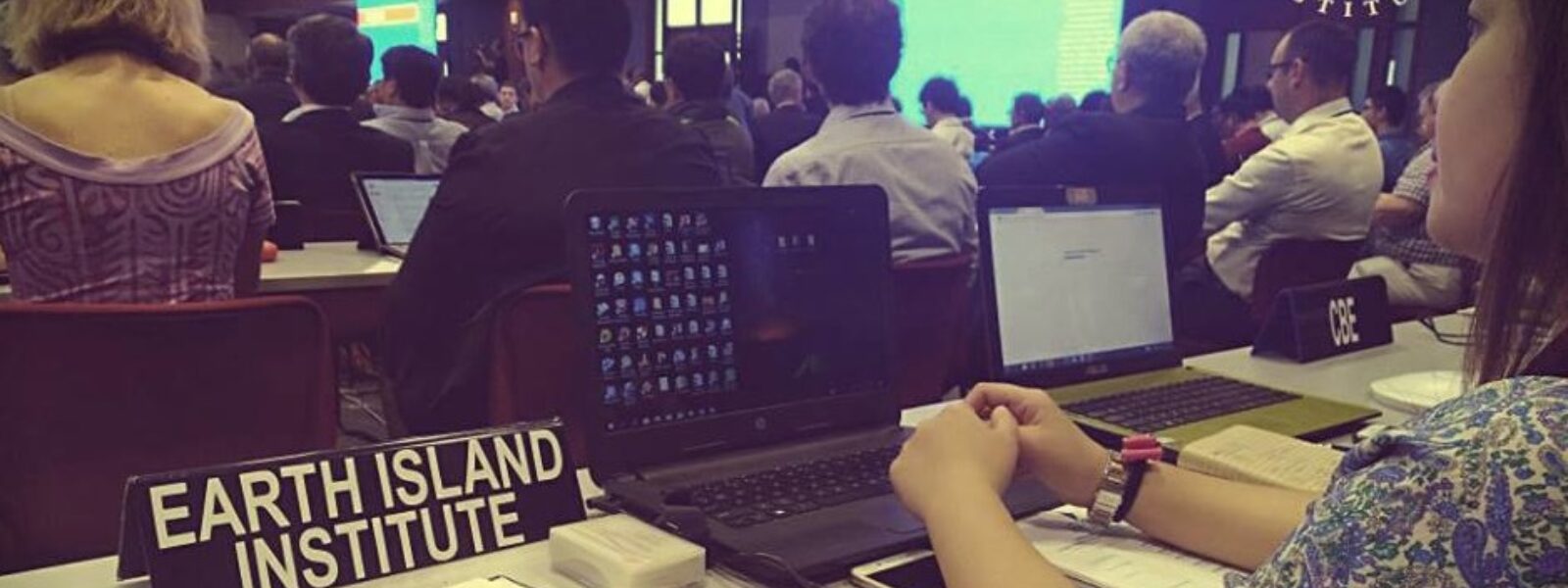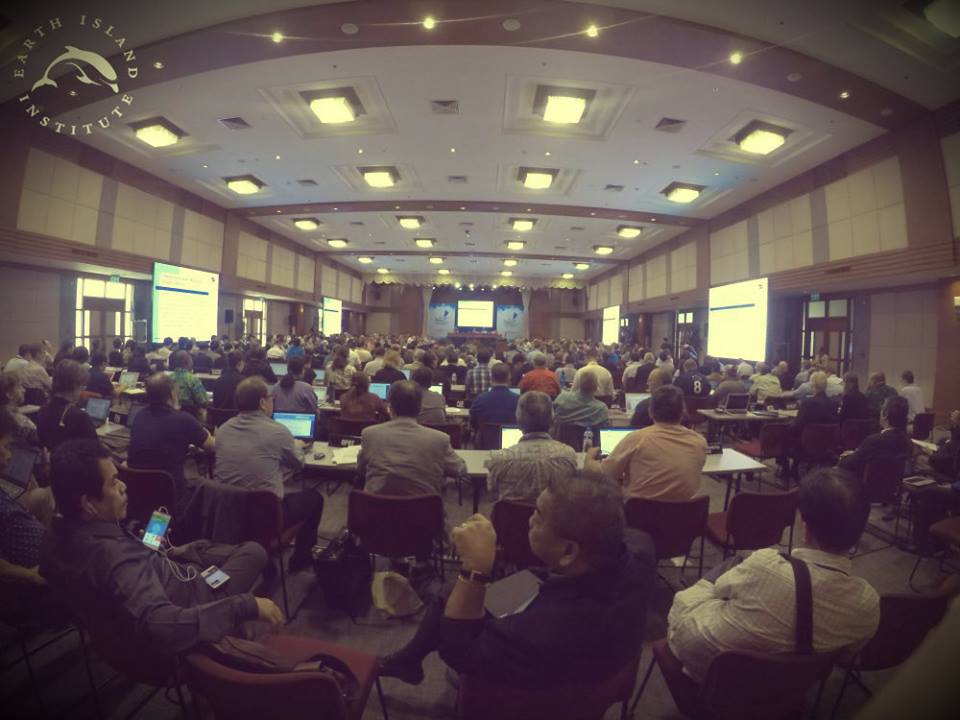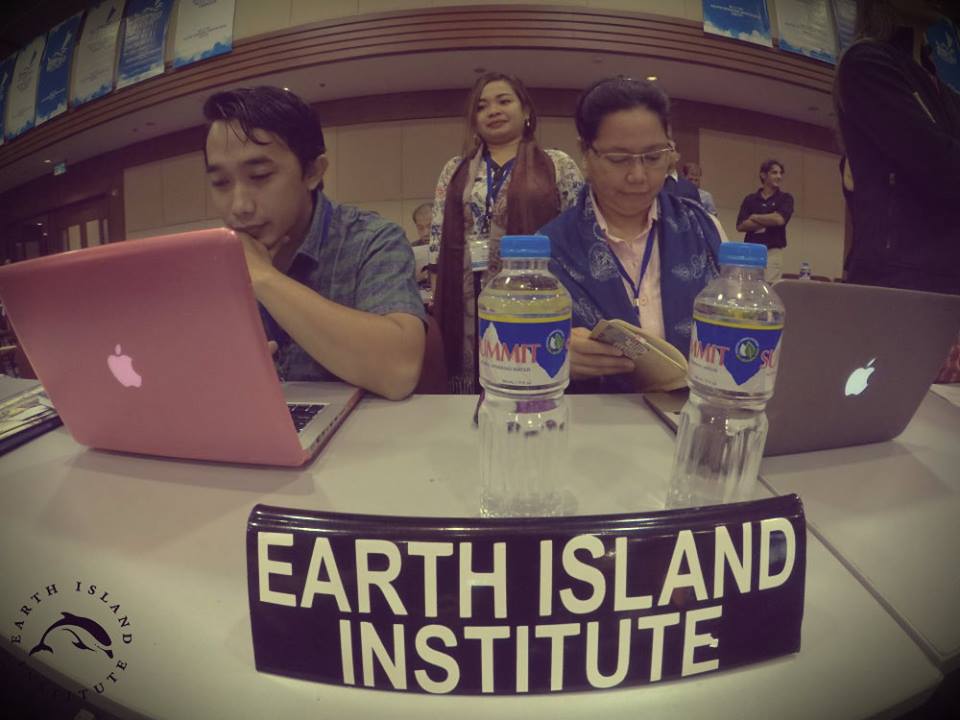

The International Marine Mammal Project’s Asia-Pacific Office staff, based in the Philippines, recently attended the 14th annual Western and Central Pacific Fisheries Commission (WCPFC) Conference in Pasay City, Metro Manila, Philippines.
The WCPFC is a treaty convention of nations that fish for tuna in the Western and Central Pacific Ocean, the largest tuna fishing area in the world. The WCPFC sets quotas for tuna stocks to prevent over-fishing and regulations to protect marine resources.
 Those in attendance included country government representatives that are signatories of the treaty, cooperating non-member organizations, and observers of different nations, including nonprofit non-governmental organizations (NGOs) like IMMP Asia-Pacific. Delegates presented their proposals on conservation management strategies concerning a wide array of environmental issues. Highlighted agenda items, which are essential to the enhancement of our Dolphin-Safe tuna monitoring and audit activities, are as follows:
Those in attendance included country government representatives that are signatories of the treaty, cooperating non-member organizations, and observers of different nations, including nonprofit non-governmental organizations (NGOs) like IMMP Asia-Pacific. Delegates presented their proposals on conservation management strategies concerning a wide array of environmental issues. Highlighted agenda items, which are essential to the enhancement of our Dolphin-Safe tuna monitoring and audit activities, are as follows:
Most of the conservation and management measures (CMM) provisions regarding tropical tunas were broken down into sections and were discussed among smaller working groups. Topics included provisions for shark conservation, longline fishery monitoring, Fish Aggregating Device (FAD) issues and more.
Unfortunately for the tunas and other species, a lot of politics can come into play among countries that often see their main goal as to benefit their own tuna industry, rather than abide by scientific advice to protect the marine environment.
Of particular note are the intense discussions held by the Small Working Group (SWG) on CMMs concerning tropical tunas. The CMMs include quota proposals for different species to protect the tuna stocks. Several countries refused to adopt the related measures proposed at the conference. On December 4th, the Chair of the WCPFC requested that all non-head delegates, including all observers, leave the main conference room. Head delegates held a private meeting about tropical tuna CMMs behind closed doors. This was a big disappointment to all observers, especially those that paid for flights to attend, as well as to those who paid registration fees.
NGO observers are becoming increasingly frustrated with the slow paced adoption of WCPFC’s critical CMMs. This slow pace reaffirms IMMP Asia-Pacific’s belief that working with individual companies to adopt the strong international Dolphin Safe Policy, which mirrors many of the WCPFC’s proposed ideas regarding sustainable fishing practices, bycatch and CMMs, is actually a more direct and effective way of encouraging companies to adopt more expansive sustainable operations.
IMMP Asia-Pacific’s attendance at these meetings serves to enhance our Dolphin Safe staff monitors’ wider perspective on the overall situation of the tuna fisheries in our region. Knowledge and information gathered at these meetings will enhance our audit and monitoring activities related to the International Monitoring Program of Earth Island Institute’s International Marine Mammal Project. We also had opportunities to meet with representatives of major tuna companies that are part of our program We are very pleased that we had the opportunity to participate in the 14th WCPFC Conference.
For more information on the work of Earth Island IMMP’s Asia-Pacific Office, go to our Facebook Page.
